Last Updated on May 16, 2023
For time immemorial, humanity has been fascinated and perplexed by death. It is probably the most inevitable thing in life, yet it is surrounded by mystery. Philosophers, scientists, religious leaders, and ordinary people have pondered the question of — what happens when we die.
Like everything in life, everyone has an opinion or belief.
Some people believe that death is simply the end of existence, a permanent cessation of consciousness and being. Others believe that death is a gateway to another realm, either eternal peace or eternal suffering. And some others believe that death is merely a new beginning, a chance for the soul to be reincarnated or to continue on in some other form.
But what really happens when we die? Is it the end, or just the beginning of a new journey? If you’ve ever asked these questions, you’re not alone. Let us explore the mysteries of death and what science, religion, and philosophy have to say about what happens when we take our last breath.
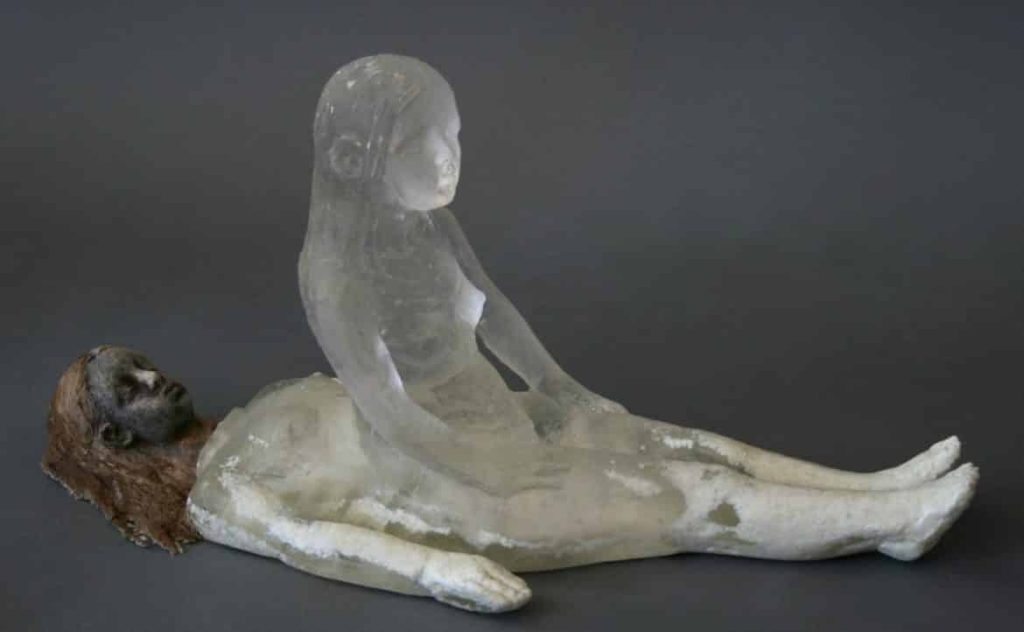
What Happens When We Die From Different Perspectives
In recent times, science has provided some insights into the process of dying, but it still cannot fully explain the mysteries of death.
From a biological perspective, death is the point at which vital functions such as heartbeat, brain activity, and respiration cease. But what happens to the mind and the soul? Is there an afterlife? What is the ultimate fate of our consciousness? These are questions that science is yet to fully answer.
Religion and philosophy also offer perspectives on death. Many religions believe in some form of afterlife, whether it be heaven, hell, or reincarnation. These belief systems often offer comfort and hope to those who are grieving or facing their own mortality.
Philosophy, on the other hand, offers a more secular perspective on death. Many philosophers have argued that death is simply the end of our existence and that we should focus on living our lives to the fullest while we can.
Read: How Can We Improve Air Quality for Better Health?
The Scientific Explanation of What Happens When We Die
Science provides a unique perspective on what happens when we die. While it cannot fully explain death’s mysteries, it can provide insights into the physical and biological processes that occur at the end of life.
As earlier mentioned, death is defined biologically as the cessation of vital bodily functions such as heartbeat, brain activity, and respiration. These functions are initially controlled by the body’s cells, tissues, and organs. And if they cease to function, it means the body can no longer sustain life. The precise cause of death varies, but it is frequently related to disease or injury.
One of the first things that happen when the heart stops beating is that blood stops flowing to the brain. Then, the brain cells die within minutes of being deprived of oxygen and nutrients. This results in loss of consciousness and cessation of brain activity. As the brain dies, the body’s reflexes and movements cease.
Furthermore, when respiration stops, the body’s cells can no longer produce energy and begin to die. This causes the breakdown of the body’s tissues and organs, and eventually the body as a whole. This is then followed by bacteria and other microorganisms taking over the decay process by breaking down the body’s tissues.
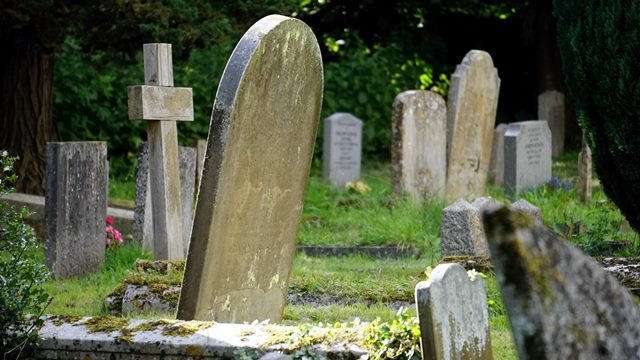
Death Isn’t Immediate Even in Science
It is important to note that death is not always a sudden or immediate process. In some cases, it can be a gradual process that takes days, weeks, or even months. This is particularly true in cases of terminal illness, where the body’s vital functions gradually shut down.
Science has also begun to investigate the possibility of brain death and its relationship to death in recent years. For legal and medical purposes, brain death is defined as the complete loss of brain function and is considered the point of death. It can be brought on by a severe injury, illness, or a lack of oxygen to the brain.
Even though the body is still alive in these cases, it is considered dead. This is because the brain, which is responsible for consciousness and the ability to sustain life, can no longer function.
Read: How Does Oral Health Affect Overall Wellness?
The Spiritual Explanation of What Happens When We Die
Many cultures and religions have pondered the spiritual explanation of what happens when we die throughout history. And following this, many spiritual belief systems regard death as a transition to another realm of existence rather than the end. This confirmation mostly is received from the holy books of some of these religions.
The existence of an afterlife is one of the most common spiritual beliefs about death. This is the belief that a person’s soul or spirit lives on after the death of the physical body.
Many religions, including Christianity, Islam, and Judaism, believe in the existence of heaven or paradise — a place of eternal happiness and peace where righteous souls reside after death. Also, they believe that hell, or a place of eternal punishment for the souls of the wicked, exists.
Reincarnation is another popular spiritual belief about death. This is the belief that after death, a person’s soul or spirit is reborn in a new body. Many Eastern religions, including Hinduism, Buddhism, and Sikhism, believe in reincarnation, They describe it as the cycle of birth, death, and rebirth. This belief holds that the soul goes through a series of lives, with each life providing an opportunity to learn, grow, and evolve.
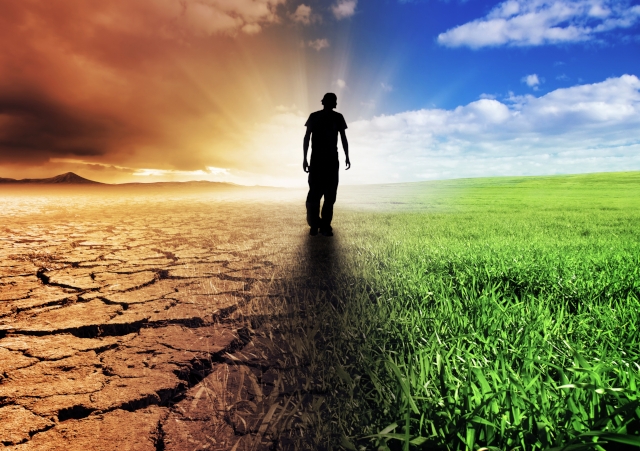
Death Is the End in Some Religious Beliefs
Many spiritual belief systems also believe in the presence of a higher power or divine being who governs the universe. This higher power is frequently viewed as being responsible for the creation of life and determining the fate of the soul after death. This belief is frequently accompanied by the notion that there is a purpose or reason for our existence. And that death is just a part of a larger plan.
There are also spiritual belief systems that reject the afterlife or any kind of continuation of life after death. They believe that death is simply the end, that there is no afterlife, no heaven, no hell, no reincarnation, and that we simply cease to exist when we die. This stance is frequently based on the idea that life is temporary. Hence, we should make the most of the time we have in this world.
Finally, depending on the belief system, the spiritual explanation of what happens when we die varies greatly. The recognition of the existence of something beyond the physical realm, and that death is not the end but just the beginning of a new journey is the common thread among all of them.
Whether it is belief in an afterlife, reincarnation, or the idea that death is simply the end — understanding the spiritual perspective on death can provide comfort, hope, and insight into the mystery of death.
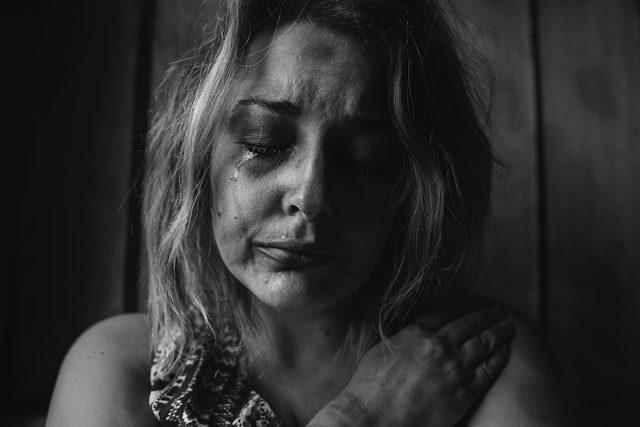
Continuation of What Happens to the Body After Death
As earlier explained, when a person dies, one of the first things that happen is that the heart stops beating. Without blood flow, the brain quickly loses oxygen and nutrients, resulting in loss of consciousness and a halt in brain activity. As the brain dies, so do the body’s reflexes and movements.
The body begins to cool down once the heart stops beating. This condition, known as algor mortis or “death chill,” is caused by heat loss from the body’s tissues. The rate at which the body cools down is affected by factors such as age, gender, and weight, as well as ambient temperature.
As the body’s cells lose their ability to produce energy, they begin to die. This causes the body’s tissues and organs to break down, and eventually the body as a whole. The decay process begins when bacteria and other microorganisms begin to break down the body’s tissues. This process is referred to as Putrefaction, and it is the process responsible for the unpleasant odors associated with death.
Another physical change that occurs after death is rigor mortis or muscle stiffening. It appears between two and six hours after death and can last up to 72 hours. It is caused by the accumulation of lactic acid and the depletion of adenosine triphosphate, a molecule that provides energy to the muscles.
Another physical change that occurs after death is livor mortis or blood settling. This happens when the heart stops pumping and blood begins to settle in the lower body. As a result, the person’s skin turns a purplish-red color where blood has accumulated.
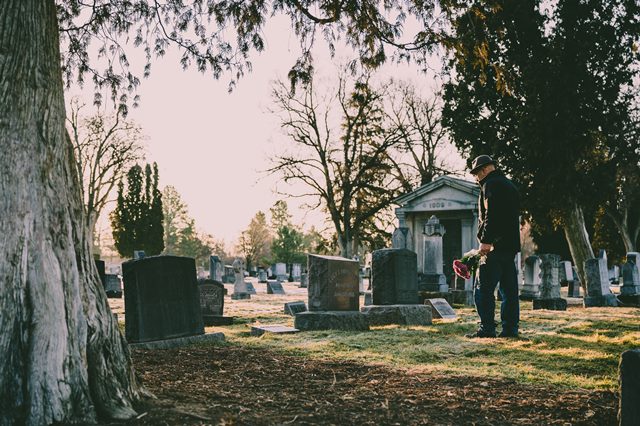
What Happens After We Die Remains a Mystery
When a person dies, the body goes through several physical changes until it is entirely decayed. But what happens to the soul after death is a mystery that has not been unraveled to date.
There are many stories about people who died and came back to life. But no one knows for sure who is telling the truth and who isn’t.
Despite the finality of death, the memories and impact of a person who has passed away can live on through the people they loved and touched during their lifetime.
Grief and mourning are natural and necessary processes for those who have lost a loved one. Finding ways to cope with the loss and celebrate the life of the person who has died can be an important step in the healing process.
Ultimately, the belief of what happens when we die is a personal and subjective one, shaped by cultural, religious, and individual perspectives. While death may be a difficult and uncomfortable topic to think about, it is important to consider our own beliefs and make peace with the idea of dying as a natural part of life.
Before you go…
Hey, thank you for reading this blog to the end. I hope it was helpful. Let me tell you a little bit about Nicholas Idoko Technologies. We help businesses and companies build an online presence by developing web, mobile, desktop, and blockchain applications.
We also help aspiring software developers and programmers learn the skills they need to have a successful career. Take your first step to becoming a programming boss by joining our Learn To Code academy today!
Be sure to contact us if you need more information or have any questions! We are readily available.











